-
Patricia Da Silva: ‘The Time is Now’ to Accelerate Progress for Sexual and Reproductive Health and Rights
› “Almost everyone of reproductive age—about 4.3 billion people—will not have access to at least one essential or reproductive health intervention over the course of their lives,” said Patricia Da Silva, Associate Director, International Planned Parenthood Federation United Nations Liaison Office. She spoke at a recent Wilson Center event showcasing recommendations from the Guttmacher-Lancet Commission report, “Accelerate progress–sexual and reproductive health and rights for all,” on how to advance sexual and reproductive health from a human rights perspective.
“Almost everyone of reproductive age—about 4.3 billion people—will not have access to at least one essential or reproductive health intervention over the course of their lives,” said Patricia Da Silva, Associate Director, International Planned Parenthood Federation United Nations Liaison Office. She spoke at a recent Wilson Center event showcasing recommendations from the Guttmacher-Lancet Commission report, “Accelerate progress–sexual and reproductive health and rights for all,” on how to advance sexual and reproductive health from a human rights perspective. -
Innovative Approaches Empower Adolescent Girls to Live HIV-free Lives
›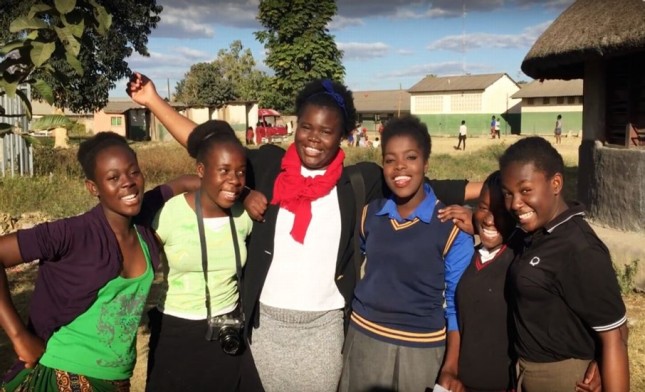
“Everyone in the community knew that I was the next [to get pregnant], but I was so determined that until I achieve my dream of becoming an accountant, I will not drop out of school, and I will not get pregnant,” said Rebecca Acio, a 19-year-old Ambassador for the Strengthening School-Community Accountability for Girls’ Education (SAGE) DREAMS Project, Uganda. She spoke at a recent Wilson Center event on emerging lessons from the DREAMS Innovation Challenge. As a peer educator at her school in Lira, Uganda, and a temporary dropout herself, Acio “knew what it cost to be a dropout” and worked to identify other at-risk girls to encourage them to stay in school.
-
Planning for the Public Health Effects of Climate Migration
›
In Alaska’s arctic communities, Inuit contemplating the need to relocate have reported that the loss of sea ice would make them feel like they are lost or going crazy. Zika and other vector-borne diseases have been a concern primarily for people in the southeastern United States. Recent research on the long-range internal migration of people from the coasts to the interior suggests a broader national concern regarding “climate augmentation” of disease. These are just two examples of the many public health effects we can expect as climate change forces people to uproot themselves.
-
Saving Lives: Focusing on Outcomes to Improve Maternal and Newborn Healthcare Quality
›
Poor quality care is now a bigger barrier to reducing mortality than insufficient access to healthcare, said Dr. Margaret Kruk, Chair of The Lancet Global Health Commission on High Quality Health Systems in the Sustainable Development Goal Era. She spoke at a recent Wilson Center event on strategies to improve and sustain high-quality reproductive, maternal, and newborn care at scale. “We estimate that 8.6 million lives are lost every year due to lack of access to high quality care, and of that 8.6 million, five million lives are lost by people who have already reached out to the health system.”
-
Mothers on the Front Lines: Armed Conflict, Aid Distribution, and Maternal and Child Health
›
While most people killed in wars are male, several studies have found that “mortality among women in some high-intensity conflicts was as severe as male mortality,” said Henrik Urdal, the Director of the Peace Research Institute Oslo (PRIO), at a recent Wilson Center event on the links between maternal and child health, aid, and armed conflict. “Maternal health is a very natural place to start” when researching excess mortality and indirect deaths among women impacted by war, said Urdal.
-
Too Little Too Late: Violence Disrupts Maternal Health Care in Conflict Settings
› “One of the first victims of war is the health care system itself,” said Marco Baldan, the chief war surgeon for the International Committee of the Red Cross. Violence directed at health facilities and workers is common in conflict, despite international laws protecting medical personnel, facilities, and transport vehicles during war.
“One of the first victims of war is the health care system itself,” said Marco Baldan, the chief war surgeon for the International Committee of the Red Cross. Violence directed at health facilities and workers is common in conflict, despite international laws protecting medical personnel, facilities, and transport vehicles during war. -
Driven to Care: Improving Transportation to Reach Maternal Health Care in Conflict Zones
› How much time passes between a laboring woman’s decision to seek care and her arrival at a health facility? Transportation for emergency obstetric care should be swift and timely, but for many refugees in the world’s conflict zones, it is not.
How much time passes between a laboring woman’s decision to seek care and her arrival at a health facility? Transportation for emergency obstetric care should be swift and timely, but for many refugees in the world’s conflict zones, it is not.An analysis of refugee maternal mortality in 10 countries found that transportation problems contributed to more maternal deaths outside of refugee camps, which tend to have better access to emergency transportation services.
-
Fragile Families: Scaling Up Healthcare in Conflict Settings
› “How do our interventions provide an opportunity to really work at some of the core drivers of instability or lack of resilience?” said Larry Cooley from Management Systems International at a recent Wilson Center event on scaling up reproductive, maternal, newborn, child, and adolescent health interventions.
“How do our interventions provide an opportunity to really work at some of the core drivers of instability or lack of resilience?” said Larry Cooley from Management Systems International at a recent Wilson Center event on scaling up reproductive, maternal, newborn, child, and adolescent health interventions.
Showing posts from category health systems.


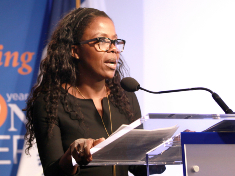 “Almost everyone of reproductive age—about 4.3 billion people—will not have access to at least one essential or reproductive health intervention over the course of their lives,” said Patricia Da Silva, Associate Director, International Planned Parenthood Federation United Nations Liaison Office. She spoke at a
“Almost everyone of reproductive age—about 4.3 billion people—will not have access to at least one essential or reproductive health intervention over the course of their lives,” said Patricia Da Silva, Associate Director, International Planned Parenthood Federation United Nations Liaison Office. She spoke at a 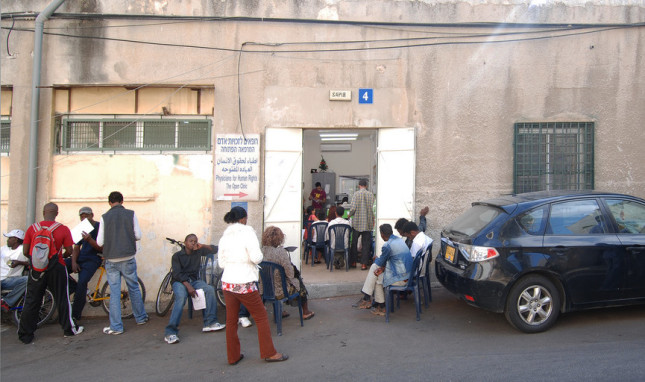
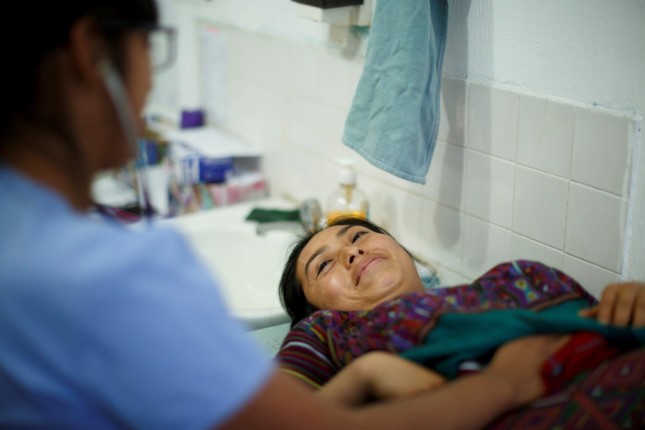
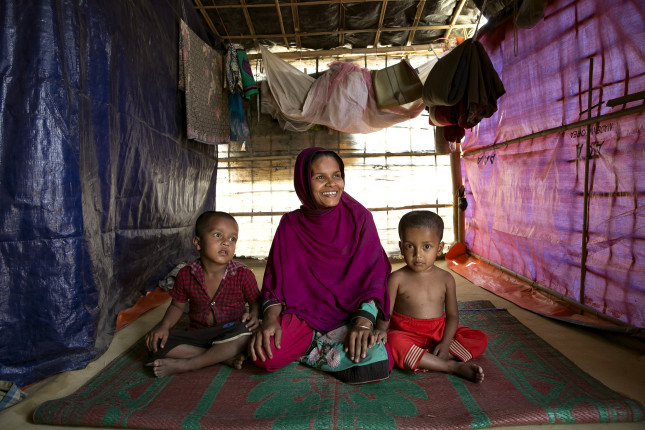
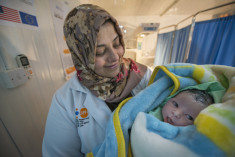 “One of the first victims of war is the health care system itself,”
“One of the first victims of war is the health care system itself,” 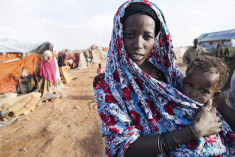 How much time passes between a laboring woman’s decision to seek care and her arrival at a health facility? Transportation for emergency obstetric care should be swift and timely, but for many refugees in the world’s conflict zones, it is not.
How much time passes between a laboring woman’s decision to seek care and her arrival at a health facility? Transportation for emergency obstetric care should be swift and timely, but for many refugees in the world’s conflict zones, it is not.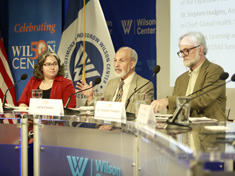 “How do our interventions provide an opportunity to really work at some of the core drivers of instability or lack of resilience?” said Larry Cooley from Management Systems International at a
“How do our interventions provide an opportunity to really work at some of the core drivers of instability or lack of resilience?” said Larry Cooley from Management Systems International at a 

